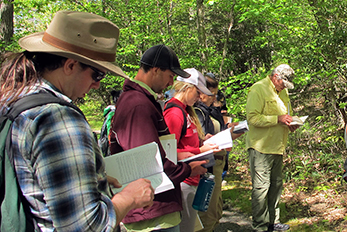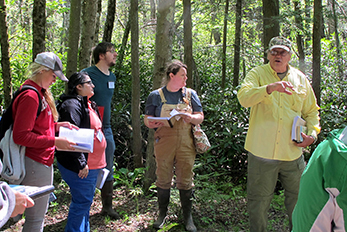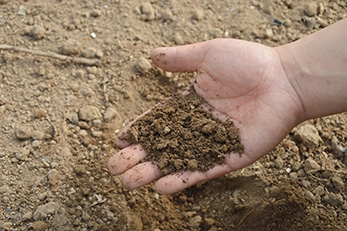Main Content
Develop your ability to identify hydric soils and assign appropriate hydric soil indicators in order to determine wetland boundaries.
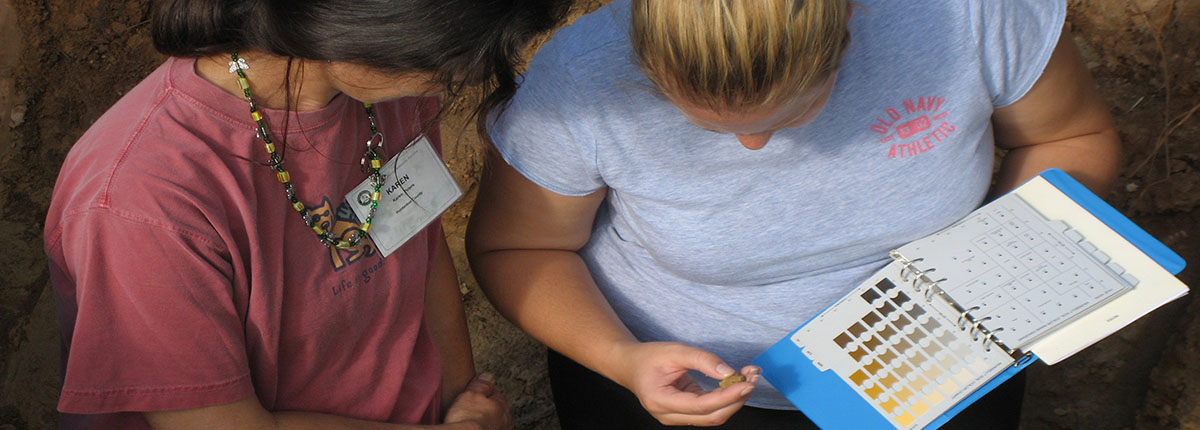
Jump to: Register | Course Details | Overview | Instructor | Reviews | CE Credits | Policies | Contact Us | Related Courses | Join Email List
Register Now
Pay with Credit Card:
Pay with Check, PO, or Money Order:
Course Details
Course Name: Hydric Soils
Course Code: EH0301WB26
Date: April 14, 15, and 16, 2026
Time: 9:00 am – 3:30 pm EDT (Log-in time: 8:45 am EDT)
Location: Online
Format: Live, instructor-led
Registration Fee: $1,050 per person
Wetland Certificate Series Discount Fee: $950 per person (must also register for Methodology for Delineating Wetlands and Vegetation Identification North OR Vegetation Identification South)
Registration closes: April 13, 2026
Paying with a check, money order, or purchase order?
Payments should be made out to: Rutgers, The State University of New Jersey
Checks and money orders should be mailed to: Office of Continuing Professional Education, Attn: Registration Dept., 102 Ryders Ln, New Brunswick, NJ 08901-8519
Purchase Orders can be mailed to the address above or electronically sent to registration@njaes.rutgers.edu.
Course Overview
![]() This class is part of the Wetland Delineation Certificate Program.
This class is part of the Wetland Delineation Certificate Program.
Wetland landscapes are characterized and classified by confirmation of the presence of three critical components: evidence of wetland hydrology, a predominance of hydrophytic vegetation, and presence of hydric soils. Typically, hydric soils are found in contemporary wetland ecosystems. Repeated periods of long duration saturation and anaerobic conditions have promoted development of morphological characteristics that distinguish them from soils found in better drained and more terrestrial landscape positions. Therefore, the presence of hydric soils is one of the primary parameters that must be documented in the identification of wetland areas and is a critical component needed to define and delineate wetland boundaries. The ability to identify hydric soils and assign one or more of the National Technical Committee for Hydric Soils “Field Indicators of Hydric Soils in the United States” is an essential step in the wetland delineation process.
Through instructor-led online lectures and a virtual field exercise, you will learn the fundamentals of how hydric soils form and how to describe layers encountered in a hydric soil vertical cross section (profile). You will be trained on how to distinguish the nuances of soil color, redoximorphic features, and field estimates of soil texture. You will also be instructed on how to complete the minimum data entries needed to complete a generic wetland delineation data form and, based on the soil description, how to assign appropriate hydric soil indicators.
NOTE: If you are planning to earn the Wetland Delineation Certificate, we require that you complete the Vegetation Identification for Delineating Wetlands: North or South and Hydric Soils courses prior to attending Methodology for Delineating Wetlands.
Course Objectives
- To provide students with an understanding of how hydric soils are formed and how to field identify soil morphologies most often associated with wetland soils, including many of the terms and descriptors unique to soil science.
- To ensure students are informed and instructed on how to complete the “Soils Section” of a typical wetland delineation data form. And, based on the soil description they present in the data form…
- To ensure students are trained on how to select one or more of the “Field Indicators of Hydric Soils in the United States” that apply to the description they have prepared… or, alternatively, they can dismiss the described soil as being non-hydric.
- To ensure that this training allows the student to present both hydric and non-hydric soil descriptions that, in combination with vegetation data and presence/absence of wetland hydrology indicators, will allow them to field flag a defensible apparent wetland boundary.
Course Completion Requirements
The following requirements must be met to earn a certificate of completion for this hydric soils course:
- Active participation during the course
- Pass an assessment at the end of the course
- Those who wish to continue on to our Methodology for Delineating Wetlands course must also complete a methodology prerequisite assessment.
Who Should Attend?
This course is designed for anyone who wants to gain experience for field identification and documentation of hydric soils, including:
- Biologists
- Conservationists
- Ecologists
- Engineers
- Environmental Analysts, Scientists, and Consultants
- Landscape Architects and Landscape Designers
- Land Surveyors
- Natural Resources Specialists
- Park Naturalists
- Planners
- Project Managers
- Registered Environmental Health Specialists (REHS)
- Wetlands Specialists and Wetland Scientists
- Wildlife Field Technicians
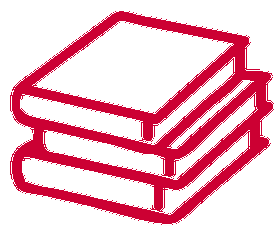 Recommended Reference Materials
Recommended Reference Materials
There are two references that are strongly recommended for students in this course:
- The Munsell Color Charts developed specifically for soils related work: Gretag/Macbeth. 2000. Munsell® color. New Windsor, NY.
- An equivalent alternative that includes the same colors presented in the Munsell Color Charts is “The Globe Soil Color Book,” which is considerably less expensive. However, those persons who intend to engage in delineations that may be subject to litigation are encouraged to use the original Munsell Color Charts for that work. This caution is offered primarily because the Gretag/Macbeth. 2000. Munsell® color charts are referenced specifically in protocols established by the U.S. Army Corps of Engineers in their Regional Supplements to the Corps of Engineers Wetland Delineation Manual, which provide technical guidance and procedures for identifying and delineating wetlands that may be subject to regulatory jurisdiction under Section 404 of the Clean Water Act or Section 10 of the Rivers and Harbors Act. Further, Munsell Color Charts are also specified in the original Corps of Engineers Wetland Delineation Manual Technical Report Y-87-1 January 1987.
- “Field Indicators of Hydric Soils in the United States – A Guide for Identifying and Delineating Hydric Soils, Version 8.2, 2018” or the most recent version currently available.
- This guide will be provided as a PDF as part of course enrollment.
Meet Your Instructor
Deborah Henson, PhD, CPSS, PWS
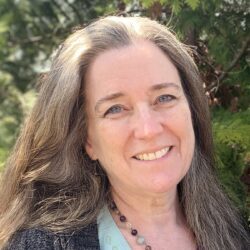
Deborah is a Certified Professional Soil Scientist and Certified Professional Wetland Scientist, with a doctorate from the University of Massachusetts Amherst in Plant & Soil Sciences, specializing in wetland soil pedology and plant-soil interactions in wetland environments. Deb has more than thirty years of experience as a wetland scientist. She started her career as an environmental professional working for environmental consulting firms in New Jersey in the late 1980s and early 1990s. After completing her doctoral studies at UMass Amherst, she was hired there as full-time faculty; and since 2011 she has been managing the interdepartmental Environmental Science Program. Her campus teaching includes full-semester courses in “Wetland Soils,” “Environmental Soil Science,” and “Soil Science & Management.” She also teaches a wide assortment of wetland science and soil science short courses and workshops for UMASS Extension and the Massachusetts Department of Environmental Protection. She is co-author of the recently updated Massachusetts Handbook for Delineating Bordering Vegetated Wetlands.
Student Reviews
“The course was awesome. The breaks were super helpful to recharge your brain. The polls I found very helpful as well because it solidified the lecture. I would recommend this course because although it is very dense for a short timeframe, it is such an informative class.”
– Sofia Martinez, Capital Environmental Consultants, Inc.
Environmental Scientist– Alyssa Jaffee, Oak Ridge Institute for Science and Education
Wildlife Technician“I’m typically not a fan of online science training classes since I think hands-on experience is more valuable than book or powerpoint learning. However this class did an excellent job of presenting the information… by a professional who clearly loves the topics discussed.”
– Chris Black, Synergy Environmental, Inc.
Senior Project ManagerContinuing Education Credits
The Hydric Soils course is approved for 1.5 Rutgers CEUs (15 contact hours), as well as the following credits from professional organizations.
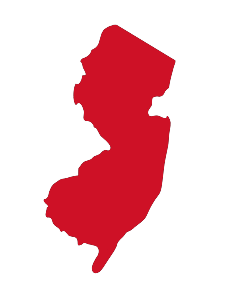 New Jersey
New Jersey
NJ Certified Public Works Managers (CPWM): 5 Technical, 2 Government, 1 Management Contact Hours
NJ Health Officers and Registered Environmental Health Specialists (HO/REHS): Rutgers University, NJAES, Office of Continuing Professional Education has been approved by the New Jersey Department of Health as a provider of NJ Public Health Continuing Education Contact Hours (CEs). Participants who complete this education program will be awarded 15.0 NJ Public Health Continuing Education Contact Hours (CEs).
NJ Land Surveyors (NJLS): 16.5 PDHs
NJ Licensed Site Remediation Professionals (LSRP): 9 Professional Development CECs (Course No. 2024-046)
NJ Professional Engineers: 12 Continuing Professional Competency (CPC) credits
 New York
New York
NY Professional Engineers: 15 PDHs (Note: This class may not fulfill the land surveyors continuing education requirements for NYS)
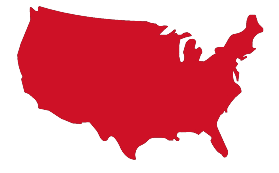 National
National
Society of American Foresters: 15 CFEs in Category 1
Society of Wetland Scientists Professional Certification Program (SWSPCP): 1 equivalent semester hour
Course Requirements and Policies
 Technology Requirements
Technology Requirements
This online course will be delivered via the Rutgers Canvas learning management system. After you register, you will receive an email from “Rutgers University Canvas” prompting you to click a link to finish setting up your Canvas account. If you do not see this message in your inbox, please check your junk/spam folder or search your email for “Instructure” (the vendor who administers the Canvas platform).
You will receive more information as we move closer to the date, including links to the Zoom sessions.
Please log into the Zoom session 15 minutes before the course start time to accomodate Zoom software updates. The course will start promptly at 9:00 am.
Equipment you will need to access this training:
- Laptop or desktop computers with webcam are required for this class.
- Speakers and microphone are not necessary as a call-in option is available.
 Email Requirement
Email Requirement
A unique email address is required for each registrant to register and access our courses.
- If this is your first time registering with us, please provide your own unique email address when registering; do not provide an email address that you share with co-workers.
- If you have previously taken classes with us and have used an email address that you share with your co-workers or supervisor, your account must be updated with a unique email address. To do this, please send an email to us at registration@njaes.rutgers.edu stating that your email address needs to be changed and include:
- Your full name
- The shared email address that needs to be changed
- Your unique email address
- A phone number where you can be reached if we have any questions
 Photo ID Requirement
Photo ID Requirement
Each registrant will be asked provide a photo of him/herself holding their government-issued photo ID. This is required by credit boards so that you may receive credits for participating in this online course.
- You will receive a reminder email prior to the start of the class with further instructions. Wait to receive these instructions before you attempt to upload your ID.
- The photo must be clear enough that we can read your name and verify that the person pictured on the ID is in fact the person holding it.
- After an OCPE staff member reviews the picture and verifies your identity, you will have access to participate in the course when it begins.
 Cancellations and Substitutions
Cancellations and Substitutions
A $100 cancellation fee applies for this course. Substitutions are permitted. View our cancellation policy.
Program Questions? We’re Here to Help!
If you have any questions about Hydric Soils, please don’t hesitate to reach out to us.
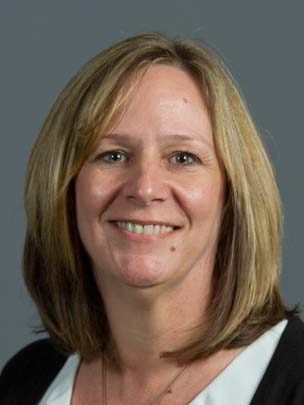
Senior Program Coordinator: Suzanne Hills
848-932-7234
suzanne.hills@rutgers.edu
For registration assistance, please contact our Registration Department at 848-932-9271, option 2 or email registration@njaes.rutgers.edu.
